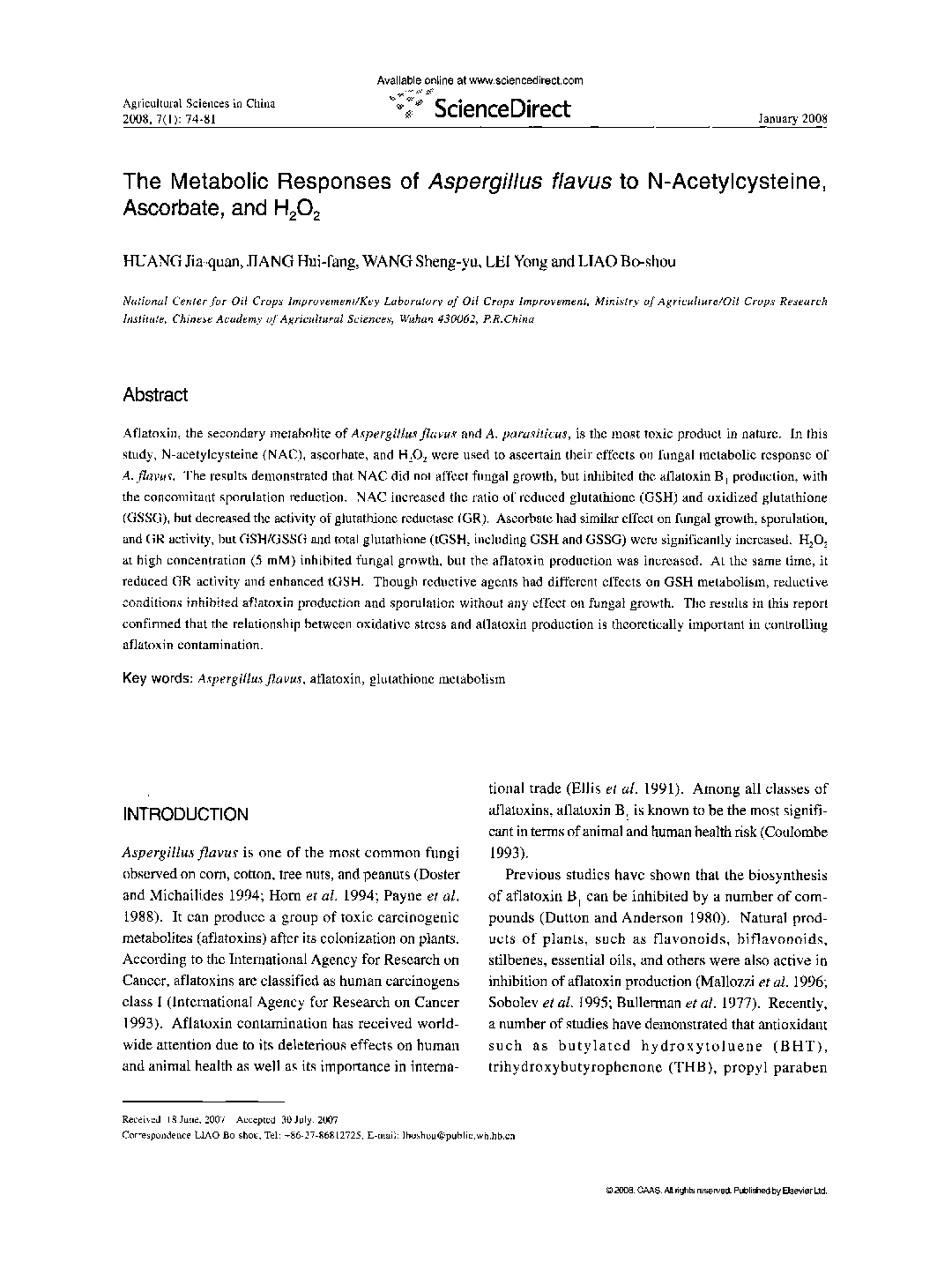| کد مقاله | کد نشریه | سال انتشار | مقاله انگلیسی | نسخه تمام متن |
|---|---|---|---|---|
| 4490726 | 1317785 | 2008 | 8 صفحه PDF | دانلود رایگان |

Aflatoxin, the secondary metabolite of Aspergillus flavus and A. parasiticus, is the most toxic product in nature. In this study, N-acetylcysteine (NAC), ascorbate, and H2O2 were used to ascertain their effects on fungal metabolic response of A. flavus. The results demonstrated that NAC did not affect fungal growth, but inhibited the aflatoxin B1 production, with the concomitant sporulation reduction. NAC increased the ratio of reduced glutathione (GSH) and oxidized glutathione (GSSG), but decreased the activity of glutathione reductase (GR). Ascorbate had similar effect on fungal growth, sporulation, and GR activity, but GSH/GSSG and total glutathione (tGSH, including GSH and GSSG) were significantly increased. H2O2 at high concentration (5 mM) inhibited fungal growth, but the aflatoxin production was increased. At the same time, it reduced GR activity and enhanced tGSH. Though reductive agents had different effects on GSH metabolism, reductive conditions inhibited aflatoxin production and sporulation without any effect on fungal growth. The results in this report confirmed that the relationship between oxidative stress and aflatoxin production is theoretically important in controlling aflatoxin contamination.
Journal: Agricultural Sciences in China - Volume 7, Issue 1, January 2008, Pages 74-81